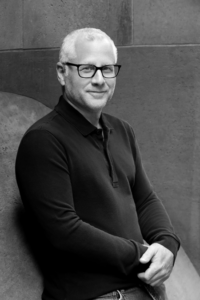Introduction
When Lou Reed departed in 2013, I stopped what I was doing and spent a few minutes listening to “Sweet Jane” and “Pale Blue Eyes.” When I heard about Prince a few years later, I turned to “1999” and “Raspberry Beret.” These private memorials were a reflex of gratitude on my part—a small protest against death, not that death cared—a way to honor these artists who were strangers but had enriched my life in countless ways.
When Russell Banks died in January, just as I was starting to read submissions for this issue of Ploughshares, I knew exactly which book of his to reach for.
Banks had a long and distinguished literary career, but he’s best known for a trio of remarkable novels published between 1985 and 1991—Continental Drift, Affliction, and The Sweet Hereafter—that recount the struggles of blue-collar people trying to survive and keep themselves sane in a world that seems hell-bent on their destruction.
I’d read and admired all three of those books when they came out, but the one that I loved was The Sweet Hereafter. It’s an undeniably bleak story—an account of a school bus accident that kills seventeen children in a small town in the Adirondacks—but it was told with such tenderness and respect for its wounded characters that it transcended the darkness of its subject matter—or at least, that’s how I remembered it, though I didn’t remember a whole lot after thirty years.
It’s risky to reread a book that you loved. People change as they grow older; things that moved you in the past don’t always speak to you in the present. But that didn’t happen with The Sweet Hereafter. As soon as I cracked it open, I felt like I was back in the company of an old friend.
The first chapter is narrated by Dolores Driscoll, the driver of the ill-fated school bus. It’s a bold choice, to open with the character who is most responsible for the accident, but it’s a brilliant one. Dolores is such a decent and thoughtful narrator—she clearly loves the kids on her morning route—that you can’t help but trust her account. She thought she saw a dog in the road—it was snowing, and visibility wasn’t great—and she swerved to avoid it. The bus broke through a guard rail and plunged into a pond. Somehow, she’s managed to forgive herself, and there’s no way for the reader to blame her, either.
My trouble started in the second chapter, which is narrated by Billy Ansel, the only eyewitness to the accident. Billy was following right behind the bus so he could wave to his kids, who were sitting in the back. This was a ritual they’d developed after Billy’s wife died, a way to give his kids some extra reassurance. It’s heartbreaking: one moment Billy’s kids are right there in front of him, and the next moment they’re gone.
That was when I started to worry, because this scene felt eerily similar to certain scenes in The Leftovers, my novel about a Rapture-like phenomenon in which two percent of the world’s population disappears in a flash, without any explanation. And not only that, there’s a character in my book, Nora Durst, who’s basically a female version of Billy, a woman who loses her entire family in the Sudden Departure. One moment they’re right in front of her, and the next moment they’re gone.
There are differences, of course. The Leftovers is a work of speculative fiction about a mysterious global catastrophe, while The Sweet Hereafter depicts a local tragedy, the kind of accident that we’re all too familiar with. In the end, though, both books share the same basic outline: people in a small town, living in the aftermath of a terrible loss, and groping for an explanation that keeps eluding them. The kinship between the two books was so strong that I kept thinking that Russell Banks must have been influenced by The Leftovers, though that made no sense.
The truth was simpler: I’d read The Sweet Hereafter in 1991, and it had left its mark on me in ways I didn’t fully understand until I read it a second time in 2023.
I was embarrassed, but like Dolores Driscoll, I forgave myself. This is what it means to be a reader. You consume a novel or a story and it changes you, sometimes just for a little while, but sometimes permanently, and in ways you may not even realize on a conscious level. It’s what it means to be human, too, to be in the debt of people you may not even know and can never thank enough.

